|
|
Recordings & Discussions of Other Vocal Works:
Main Page
| Motets BWV 225-231
| Mass in B minor BWV 232
| Missae Breves & Sanctus BWV 233-242
| Magnificat BWV 243
| Matthäus-Passion BWV 244
| Johannes-Passion BWV 245
| Lukas-Passion BWV 246
| Markus-Passion BWV 247
| Weihnachts-Oratorium BWV 248
| Oster-Oratorium BWV 249
| Chorales BWV 250-438
| Geistliche Lieder BWV 439-507
| AMN BWV 508-523
| Quodlibet BWV 524
| Aria BWV 1127
| Motet BWV 1165=Anh 159
|
|
Chorales BWV 250-438
Conducted by Helmuth Rilling |
|
CH-5 |
Edition Bachakademie Vol. 78
A Book of Chorale-Settings for Advent & Christmas |
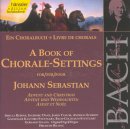 |
|
Chorales: BWV 264, 288, 289, 294, 313, 314, 318, 344, 362, 366, 368, 375, 414, 436
Sacred Songs: BWV 454, 465, 469, 476, 493
Choral Preludes: BWV 599, 600, 605, 609, 614, 722, 739, 1091 |
|
Helmuth Rilling |
|
Gächinger Kantorei Stuttgart / Bach-Collegium Stuttgart |
|
Soprano: Sibylla Rubens; Alto: Ingeborg Danz; Tenor: James Taylor; Baritone: Andreas Schmidt
Gerhard Gnann (Organ); Michael Behringer (Harpsichord) |
|
Hänssler |
Jan/Sep 1998 [Chorales & Songs]; Feb 1999 [Organ] |
CD / TT: 51:29 |
|
Recorded at Stadthalle Sindelfingen, Stadthalle Leonburg, Germany [Chorales & Songs]; Pfarrkirche St. Martin, Staufen/Breisgau, Germany [Organ]. |
|
CH-6 |
Edition Bachakademie Vol. 79
A Book of Chorale-Settings for Passion |
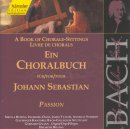 |
|
Chorale (Mvt. 3) from Johannes-Passion BWV 245
Chorales: BWV 254, 256, 257, 265, 270, 271, 272, 283, 285, 300, 302, 300, 330, 333, 336, 341, 369, 377, 393, 394, 397, 400, 402, 403, 404, 407, 408, 410, 412, 413, 430, 500a, BWV 1084, 1089, BWV deest/Wiemer 8 & 11
Sacred Songs: BWV 444, 450, 458, 471, 481, 487, 491, 498-501
Choral Preludes: BWV 622, 768/I, 1085, 1094, 1097, 1108 |
|
Helmuth Rilling |
|
Gächinger Kantorei Stuttgart / Bach-Collegium Stuttgart |
|
Soprano: Sibylla Rubens; Alto: Ingeborg Danz; Tenor: James Taylor; Baritone: Andreas Schmidt
Gerhard Gnann (Organ); Michael Behringer (Harpsichord) |
|
Hänssler |
Sep 1998; Jan-Feb 1999 [Chorales & Songs]; Feb 1999 [Organ] |
CD / TT: 79:14 |
|
Recorded at Stadthalle Sindelfingen, Germany [Chorales & Songs]; Jesuitenkirche, Porrentruy, Switzerland [Organ]. |
|
CH-7 |
Edition Bachakademie Vol. 80
A Book of Chorale-Settings for Easter, Ascension, Pentecost, Trinity |
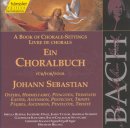 |
|
Chorales: BWV 266, 276-278, 284, 293, 295, 304, 306, 317, 342, 364, 365, 370, 378, 385, 387-388, 415, BWV deest/ Wiemer 4, 9, 10
Sacred Songs: BWV 441, 445, 452, 462, 475, 479, 480, 482
Chorale Preludes: BWV 626-628, 630a, 631a, 652a, 667a, 718, 728, 736; Fuge: BWV 716 |
|
Helmuth Rilling |
|
Gächinger Kantorei Stuttgart / Bach-Collegium Stuttgart |
|
Soprano: Sibylla Rubens; Alto: Ingeborg Danz; Tenor: James Taylor; Baritone: Andreas Schmidt
Gerhard Gnann (Organ); Michael Behringer (Harpsichord) |
|
Hänssler |
Sep 1998; Jan, Feb, May 1999; [Chorales & Songs]; Feb 1999 [Organ] |
CD / TT: 78:22 |
|
Recorded at Stadthalle Sindelfingen, Germany [Chorales & Songs]; Jesuitenkirche, Porrentruy, Switzerland & Pfarrkirche St. Martin, Staufen/Breisgau, Germany [Organ]. |
|
CH-8 |
Edition Bachakademie Vol. 81
A Book of Chorale-Settings for German Mass |
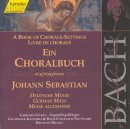 |
|
Chorale Prelude BWV 636 & Chorale (Mvt. 5) from Johannes-Passion BWV 245 (= BWV 416)
Chorales: BWV 260, 298, 322, 325, 328, 332, 363, 371/1-3, 373, 401, 416, 437
Chorale Preludes: BWV 618, 635, 636, 672, 673, 674, 681, 689, 709, 711, 715, 725 |
|
Helmuth Rilling |
|
Gächinger Kantorei Stuttgart / Bach-Collegium Stuttgart |
|
Gerhard Gnann (Organ); Michael Behringer (Harpsichord) |
|
Hänssler |
Jan, Apr, Sep 1998 [Chorales & Songs]; Feb 1999 [Organ] |
CD / TT: 70:33 |
|
Recorded at Stadthalle Sindelfingen, Germany [Chorales & Songs]; Pfarrkirche St. Martin, Staufen/Breisgau, Germany [Organ]. |
|
CH-9 |
Edition Bachakademie Vol. 82
A Book of Chorale-Settings for Incidental Festivies, Psalms |
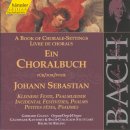 |
|
Chorale from BWV 80b
Chorales: BWV 258, 267, 280, 286, 303, 305, 308, 309, 311, 312, 323, 324, 326, 337, 338, 372, 374, 376, 382, 390, 411, 438, BWV 1123, 1126
Choral Preludes: BWV 616, 653a, 677, 685, 720, 721, 732, 733 |
|
Helmuth Rilling |
|
Gächinger Kantorei Stuttgart / Bach-Collegium Stuttgart |
|
Gerhard Gnann (Organ); Michael Behringer (Harpsichord) |
|
Hänssler |
Jan, Apr, Sep 1998 [Chorales & Songs]; Feb 1999 (Staufen) & Jul 1999 (Saessolsheim) [Organ] |
CD / TT: 63:16 |
|
Recorded at Stadthalle Sindelfingen, Germany [Chorales & Songs]; Pfarrkirche St. Martin, Staufen/Breisgau, Germany & Saessolsheim, Elsace, France [Organ]. |
|
CH-10 |
Edition Bachakademie Vol. 83
A Book of Chorale-Settings for Morning/Thanks & Praise/Christian Life |
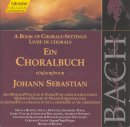 |
|
Chorales: BWV 250-252, 263, 268-269, 287 290-292, 301, 316, 319, 327, 340, 343, 346-350, 380, 386, 389, 391, 399, 426, BWV 1124, BWV deest/Wiemer 6
Sacred Songs: BWV 440, 442, 443, 449, 451, 456, 459, 494
Chorale Preludes: BWV 624, 639, 657, 715, 1115 |
|
Helmuth Rilling |
|
Gächinger Kantorei Stuttgart / Bach-Collegium Stuttgart |
|
Sopranos: Sibylla Rubens, Stella Doufexis; Alto: Ingeborg Danz; Tenors: James Taylor, Christoph Prégardien; Bass: Andreas Schmidt
Michael Behringer (Harpsichord); Gerhard Gnann (Organ) |
|
Hänssler |
Sep 1998; Apr, June, Sep 1999 [Chorales & Songs]; Jul 1999 [Organ] |
CD / TT: 69:17 |
|
Recorded at Stadthalle Sindelfingen, Germany [Chorales & Songs]; Saessolsheim, Elsace, France [Organ]. |
|
CH-11 |
Edition Bachakademie Vol. 84
A Book of Chorale-Settings for Patience & Serenity/Jesus Hymns |
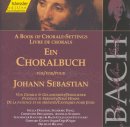 |
|
Chorales: BWV 335, 339, 352, 353, 355, 361, 379, 380, 384, 409, 417, 419, BWV 1125
Sacred Songs: 460, 466-468, 470, 472-474, 485, 489, 490, 496, 497
Chorale Preludes: BWV 610, 658a, 1105, 1118 |
|
Helmuth Rilling |
|
Gächinger Kantorei Stuttgart / Bach-Collegium Stuttgart |
|
Soprano: Stella Doufexis; Alto: Ingeborg Danz; Tenor: Christoph Prégardien; Bass: Andreas Schmidt
Michael Behringer (Harpsichord); Gerhard Gnann (Organ) |
|
Hänssler |
Sep 1998; Apr, June, Sep 1999 [Chorales & Songs]; Jul 1999 [Organ] |
CD / TT: 52:20 |
|
Recorded at Stadthalle Sindelfingen, Germany [Chorales & Songs]; Saessolsheim, Elsace, France [Organ]. |
|
CH-12 |
Edition Bachakademie Vol. 85
A Book of Chorale-Settings for Trust in God, Cross & Consolation / Justification & Penance / Dying, Death & Eternity/In the Evening |
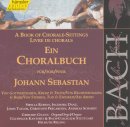 |
|
Chorale (Mvt. a) from Cantata BWV 145 [0:53]
Chorales: BWV 254, 255, 259, 261, 262, 273-275, 281, 296, 297, 304, 307, 310, 320, 321, 329, 331, 334, 345, 351, 367, 378, 381, 383, 392, 395, 396, 405, 406, 418, 420, 421, 423-425, 428, 429, 431, 432, 434, 435, BWV 1122, BWV deest/Wiemer 5, 7, 14
Sacred Songs: BWV 439, 446-448, 453, 455, 457, 461, 463, 464, 477, 478, 483, 484, 486, 488, 492, 495, 505-507
Chorale Preludes: BWV 116, 641, 690, 708a, 744, 765, 770/1, 1100, 1112, 1114, 1117, 1120 |
|
Helmuth Rilling |
|
Gächinger Kantorei Stuttgart / Bach-Collegium Stuttgart |
|
Soprano: Sibylla Rubens, Alto: Ingeborg Danz; Tenors: James Taylor, Christoph Prégardien; Bass: Andreas Schmidt
Michael Behringer (Harpsichord); Gerhard Gnann (Organ) |
|
Hänssler |
Sep 1998; June, Sep 1999 [Chorales & Songs]; Jul 1999 [Organ] |
2-CD / TT: 139:43 |
|
Recorded at Stadthalle Sindelfingen, Germany [Chorales & Songs]; Saessolsheim, Elsace, France [Organ]. |
|
What to do with Hundreds of Bach Chorale Settings? |
|
Donald Satz wrote (September 20, 2001):
Johann Sebastian Bach composed hundreds of chorale settings for chorus.About half of them are associated with chorales from his larger choral works such as the Cantatas and Passions; the remainder are just independent entities. Also, Bach never grouped them into a 'book' or other identifiable collection. That hasn't stopped others from grouping them together, and Helmut Rilling in connection with his Hanssler cycle of the complete Bach works has done just that based on the liturgical year. As part of his cycle, Rilling has devoted a few discs to these choral pieces. The two I am reviewing are:
Hanssler 92.081
Ein Choralbuch - German Mass
Gachinger Kantorei & Bach-Collegium Stuttgart
Gerhard Gnann, Organ Soloist
Helmuth Rilling, Director
TT 70:33
Hanssler 92.085 (2 discs)
Ein Choralbuch - Trust in God, Cross, and Consolation
Justification and Penance
Dying, Death, and Eternity
In the Evening
Gachinger Kantorei & Bach-Collegium Stuttgart
Gerhard Gnann, Organ Soloist
Sibylla Rubens, Soprano
Ingeborg Danz, Alto
James Taylor and Christoph Pregardien, Tenors
Andreas Schmidt, Bass
Helmuth Rilling, Director
TT 2:19:43
Before getting into the actual performances, you might be wondering why there's vocal soloists and an organ soloist on the programs. On both issues, Gnann performs organ chorale preludes which are interspersed among the vocal chorales. Then on the 2-CD set, Rilling also adds some of Bach's sacred songs which call for vocal soloists.
Now to the performances. The choral music is lovely although I don't consider Rilling's chorus better than most others I've heard. The main problem with the chorale settings is that, with little exception, the tempos are similar (slow) and the decibel level of the chorus is moderately loud. This repetition of tempo and loudness can get tiresome. Also all the singing is highly legato and of similar style.
The inclusion of sacred songs for soloists certainly enhances the diversity of the 2-cd set, and the soloists are each excellent; I'm particularly taken with Sibylla Rubens and the tenors. But there's a repetitive problem here as well which gets compounded with the choral pieces. These sacred songs tend to be of one style - warm and lyrical ballads of rounded contours. These rounded contours get added to the rounded contours of the choral pieces.
Is anyone going to break through this cycle of monotony and lift the recordings to a recommended level? Yes - Gerhard Gnann. Mr. Gnann is another of the Hanssler 'muscular' organists enlisted by Hanssler to present Bach's organ works for its complete edition. They are quite a group - Gnann, Marcon, Bryndorf, Zerer, and Lucker. Each one keys on strong projection and thrust whenever possible. They also seem to know just the right organs for their approach. Each is also highly angular, and some listeners would likely find them on the 'hard' or even 'harsh' side.
Harsh or not, Gerhard Gnann is just the remedy needed. He brings the angularity, vitality, and brashness which do not exist in the songs or chorale settings. Diversity becomes a reality.
One other consideration is that all these pieces bear little relationship to one another. We get a series of short works, and it's probably best to listen to these recordings in short doses.
Don's Conclusions: The contributions of Gerhard Gnann make the recordings worthy of purchase. They are not essential except perhaps for those who do want the chorale settings available in a 'book' type form. As for me, I'm keeping my copies although I don't anticipate dipping into them often. |
| |
|
Chorale setting on Hänssler |
|
Peter Bright wrote (January 6, 2002):
Friday was my lucky day. I popped into my local independent classical music store and found a large number of Bach CDs at 4 for 10 UK pounds (an amazing bargain, particularly by Britain's bloated CD pricing). As I own very little of Rilling's work, I picked up 4 of his chorale settings books (issues 78-81 in the Hanssler series). I am enjoying them greatly but have generally eschewed Rilling's approach for either one (period/HIP) or the other (modern/non-HIP) rather than a mixture of the two together which Rilling uses. So, I was surprised by the quality and diversity of the many 4 part chorales interspersed with chorale arrangements for the organ and songs. I'd be very interested in the diversity of opinion about these discs.
Incidentally, the other Hanssler discs I picked up were two Kay Johannsen (The Young Bach - A Virtuoso, Masterpieces from the Weimar period), Inventions and Sinfonias (Koroliov), Clavierbuchlein for Anna Magdalena Bach - 1722 version). I know that Johannsen very much divides opinion on the list but I have not heard enough to contribute my opinion as yet. The Inventions disc is far preferable to the Hewitt one (for me, her weakest effort). The Clavierbuchlein is interesting, but largely composed of relatively early drafts of 5 of the French suites. Harpsichord, clavichord and organ are employed by Mario Videla. |
|
Donald Satz wrote (January 6, 2002):
[To Peter Brigrt] I'm with Peter concerning Hewitt's Inventions being her weakest disc; I find her too aggressive. Koroliov's Inventions are is one of the better versions on the market. |
| |
|
Box 6 of the Hänssler Bach edition (chorale settings) |
|
Peter Bright wrote (August 16, 2006):
Johan Sebastian BACH (1685-1750)
Edition Bachakademie Box 6
CD 78 Advent and Christmas [51:29]
CD 79 Passion [79:14]
CD 80 Easter – Ascension – Pentecost – Trinity [78:82]
CD 81 German Mass [70:33]
CD 82 Incidental Festivities – Psalms [63:16]
CD 83 Morning – Thanks and Praise – Christian Life [69:17]
CD 84 Patience and Serenity – Jesus Hymns [52:20]
CD 85 Trust in God, Cross and Consolation – Justification and Penance – Dying, Death and Eternity – In the Evening [139:43]
Stella Doufexis, Sibylla Rubens (soprano)
Ingeborg Danz (alto)
James Taylor, Christoph Pregardien (tenor)
|Andreas Schmidt (bass/baritone)
|Gerhard Gnann (organ),
Gachinger Kantorei and Bach-Collegium Stuttgart/Helmuth Rilling
Recorded between January 1998 and September 1999 in the Stadhalle Sindelfingen, Germany (all vocal works) and the Pfarrkirche St. Martin, Staufen im Briesgau, Germany / Sässolsheim, Alsace, France (organ works) DDD
HÄNSSLER VERLAG 92.566 [9CDs: 51:29+79:14+78:82+70:33+63:16+69:17+52:20+139:43]
Bach wrote a huge number of chorale settings, some of which can be found in his great Passions, oratorios, motets and, of course, throughout his cantatas. These Protestant hymns provided invaluable teaching material, in addition to focal points for his church writings. His genius for creating arrangements of complexity and beauty from often meagre offerings is breathtaking and is compellingly presented across these nine CDs. Howe, these discs are not an unqualified success and some listeners may take issue with Rilling’s overall approach, both in terms of the ordering of chorales and the performance itself.
The first obstacle in such a mammoth undertaking concerns organisation of the more than 180 chorales. As the original four volume Breitkopf Collection of Bach chorales (1784-1787), and the Bach-Werke-Verzeichnis (BWV) ordering system was of little help, Helmut Rilling decided to arrange the pieces thematically. Taking clues from the hymn books of Bach’s time, most notably that of Schemelli (1736), to which Bach contributed, themes were found within which various chorales could be placed. For the most part, this approach works very well. For example, there is much uplifting and joyful music to be found in the first CD (78), which concerns the feast of Advent and Christmas. Far bleaker is the disc of Passion chorales (79). A very welcome addition to all discs is the inclusion of chorale arrangements for the organ. These help to maintain interest and also offer relief from what can sometimes be emotionally exhausting music, particularly in the case of CDs 79, 81 and 85.
The performances themselves are of a consistently high level, technically at least. However, Rilling seems intent on maintaining a smooth delivery and a consistent tone that can become monotonous over time. I would urge you to dip into these recordings rather than try to sit through entire discs at a time. The singers are excellent, although the spacious acoustics of the Stadthalle, Sindelfingen, renders the voices rather indistinct. I was also put off by the level of vibrato employed in the upper registers. This seems rather out of place in recordings that otherwise appear more guided by historically informed performance practice than is often the case with Rilling.
Of the various discs, the first (78) is perhaps the most immediately arresting, including some beautifully played organ chorales (including the famous Nun komm, der Heiden Heiland, BWV 599). There are also a number of superb sacred songs, my personal favourite of all being O Jesulein süss, o Jesulein mild (BWV 493), arranged for alto and bass. Listeners will also instantly recognise the chorale setting In dulci jubilo (BWV 368) tucked away on this disc.
As a whole, the performances fail to bring the required weight to the more dramatic pieces, many of which are collected in the second set (Passion). This is a pity, as there are some absolute masterpieces here such as Herzliebster Jesu from the St John Passion (BWV 245). However, it was wonderful to hear all the chorales of the lost St Mark Passion (BWV 244) gathered together on this disc. The music, despite my reservations about the performance, cannot fail to impress.
The centrepiece of the following set (Easter, Ascension, Pentecost, Trinity) is Christ lag in Todesbanden, presented as two strophes of Martin Luther’s hymn arranged for four voices (BWV 277, 278) followed by an organ setting (BWV 718). The chorale cantata constructed around this hymn (BWV 4) is one of Bach’s most popular works, and its presentation here is very effective, with the organ arrangement respectfully played by Gerhard Gnann. Similarly, Valet will ich dir geben (BWV 736/415) is tremendous and the short chorale setting deeply moving.
The German Mass contains some of Bach’s most difficult and opaque music. Scholars have remarked that it signalled a turning point in his life towards his late period of even greater concentration on the science of fugue, canon and variation on themes. Disc 81, which contains settings of the Kyrie and Gloria from the Mass as well as various related chorale settings and organ preludes offers music of monumental stature, but is lacking warmth in this performance. Disc 82 includes a large number of short psalms, which although attractive, are delivered with the same style and tempo, rendering the overall effect rather dull. More successful are the settings for incidental festivities, which include the vital organ prelude and chorale Lobt Gott, ihr Christen allzugleich (BWV 732).
Despite my complaint that these performances can lack conviction and intensity, at times they are quite wonderful. The set gathered together under the theme of Morning (disc 83, tracks 1-11) is particularly impressive (with the exception of the song Die guldne Sonne, sung with a vibrato that seems totally out of place). Once again, however, with 36 tracks on this CD, greater variation in nuance and tone would have been welcomed. Rilling conducts the themes of patience and serenity (disc 84) very well and his approach, which is the antithesis of, say, John Eliot Gardiner, seems best suited to the more contemplative pieces.
Some of the finest music is left to the final double set (CD 85). Particularly fine are the chorale settings Von Gott will ich nicht lassen (BWV 418) on the first disc, and Alle Menschen müssen sterben (BWV 262) and Christ, der bist der heile Tag (BWV 273/1120). Once more, though, with 63 tracks spanning these two discs the kind of variation of colour and tone needed to maintain interest is in short supply.
Rilling has clearly put a great deal of time and energy into organising these wonderful pieces and it is quite an achievement. I am sure I will return to the discs from time to time, yet, ultimately I was disappointed that there was not sufficient emotion expressed in the performances. In these chorales we can find joy, sadness, anger, pain, ecstasy and any other emotion you care to mention. The recordings provide beauty in abundance, but these versions do not tap those emotional highs and lows reflected in the texts and in Bach’s astonishing arrangements. Libretto and notes included in German, English, French and Spanish. |
| |
|
Rilling's 'A Book of Chorale Settings for Johann Sebastian' |
|
Paul Johnson wrote (January 15, 2010):
I have long puzzled over that block of BWV numbers which catalogue all of the short chorale settings. It's the one area of Bach's music that I have never investigated and, in truth, didn't really understand (in terms of what these pieces are and how they 'fit' with the rest of his work). After reading the discussions on the site I decided to take the plunge and buy Rilling's recordings of them. It wasn't much of a plunge as I found a ridiculously cheap set on amazon for £25 (a brand new set, which included postage from the USA!). At less than £3 a disc, this was an easy gamble. But, of course, there was no real gamble as the set comes up trumps! I really like the ordering of the pieces, themed and placed amidst organ pieces and sacred songs. I haven't listened to much but the 'Passion' disc has really caught my attention - not least because of it's obvious relationship with the St.Matthew and John. I *really* like these discs and cannot understand, after listening to Bach for the past fifteen years, why I haven't investigated this music more. But I am very grateful for what many of you have previously said, and reading your wise words on the site inspired me to buy this. |
|
Douglas Cowling wrote (January 15, 2010):
Paul Johnson wrote:
< I have long puzzled over that block of BWV numbers which catalogue all of the short chorale settings. It's the one area of Bach's music that I have never investigated and, in truth, didn't really understand (in terms of what these pieces are and how they 'fit' with the rest of his work). >
I always assumed that these chorales were just survivals from lost cantatas, but there are some very interesting settings in the collection. There are orchestrated settings of the three wedding chorales (BWV 250-252). Were they intended to be used on the occasion of a "full" wedding with cantata or were they used at a "half" wedding? The setting of "Nun Danket" has a virtuoso second horn part similar to the closing chorale of "Wie Schön Leuchtet"
Perhaps the most interesting settings are the extended chorale settings of the German Mass, particularly the Credo "Wir Glauben All". If they were all put together, we might well have the mass music which Choir II sang in St. Nicholas while Choir 1 was singing in St. Thomas. This music may also gius an idea of what mass settings were like at weekday services in Leipzig. We focus so exclusively on the Sunday music that we forget that polyphony was sung every day, just as we encounter in an English college or cathedral. |
|
Matthew Westphal wrote (January 16, 2010):
Bach's short chorale settings
Paul Jhohnson wrote.:
< I have long puzzled over that block of BWV numbers which catalogue all of the short chorale settings. It's the one area of Bach's music that I have never investigated and, in truth, didn't really understand (in terms of what these pieces are and how they 'fit' with the rest of his work). >
Doug Cowling.: <
< I always assumed that these chorales were just survivals from lost cantatas, >
me:
Is there any concordance between those freestanding chorale settings and the short settings that typically close the chorale cantatas?
Also, perhaps they were pieces Bach put together for use by the fourth and perhaps third choirs at the Petrikirche and Neue Kirche?
Anyone know what the scholarly consensus (if any) on this is? |
|
Douglas Cowling wrote (January 17, 2010):
Matthew Westphal wrote:
< Also, perhaps they were pieces Bach put together for use by the fourth and perhaps third choirs at the Petrikirche and Neue Kirche? >
It would be interesting to see the repertoire lists at all four churches on a given Sunday or festival. |
|
Aryeh Oron wrote (January 17, 2010):
Matthew Westphal asked:
"Is there any concordance between those free-standing chorale settings and the short settings that typically close the chorale cantatas?"
See:
Article: http://www.bach-cantatas.com/Articles/Breitkopf-History.htm
List: http://www.bach-cantatas.com/CM/IndexCM-Breitkopf.htm |
| |
|
Chorales BWV 250-438
Recordings | General Discussions: Part 1 | Part 2 | Part 3 | Chorales in Bach's Vocal Works: Part 1 | Part 2 | Part 3 | Part 4 | Part 5 | Part 6 | Hidden Chorale Melody Allusions | Passion Chorale
Individual Recordings: Hilliard - Morimur | Chorales - N. Matt | Chorales - H. Rilling | Preludi ai Corali - Quartetto Italiani di Viola Da Gamba
References: Chorales BWV 250-300 | Chorales BWV 301-350 | Chorales BWV 351-400 | Chorales BWV 401-438
Texts & English Translations of Chorales: Sorted by Title
Chorale Melodies: Sorted by Title | 371 4-Part Chorales sorted by Breitkopf Number | Explanation
MIDI files of the Chorales: Cantatas BWV 1-197 | Other Vocal Works BWV 225-248 | Chorales BWV 250-438
Articles: The Origin of the Texts of the Chorales [A. Schweitzer] | The Origin of the Melodies of the Chorales [A. Schweitzer] | The Chorale in the Church Service [A. Schweitzer] | Choral / Chorale [C.S. Terry] | The History of the Breitkopf Collection of J. S. Bach’s Four-Part Chorales [T. Braatz] | Chorale Melody Allusions in Bach's Vocal Works [T. Braatz]
Hymnals used by Bach | Abbreviations used for the Chorales | Links to other Sites on the Chorales |
|
Helmuth Rilling : Short Biography | Gächinger Kantorei Stuttgart | Frankfurter Kantorei | Figuralchor der Gedächtniskirche Stuttgart | Bach-Collegium Stuttgart | Oregon Bach Festival
Recordings of Vocal Work: Part 1 | Part 2 | Part 3 | Part 4 | Part 5 | Part 6 | Part 7 | Part 8 | Part 11 | Part 12 | Part 13
General Discussions: Part 1 | Part 2 | Part 3 | Part 4 | Part 5
Cantatas: Edition Bachakademie - Vols. 1-20 | Edition Bachakademie - Vol. 9 | Edition Bachakademie - Vol. 60 | Arleen Augér sings Bach - conducted by H. Rilling | Dietrich Fischer-Dieskau sings Bach - conducted by H. Rilling
Other Vocal Works: BWV 232 - H. Rilling | BWV 243 - H. Rilling | BWV 244 - H. Rilling | BWV 245 - H. Rilling | BWV 248 - H. Rilling | Chorales - H. Rilling
Cantate Label: Recordings of Vocal Works | General Discussions
Table of recordings by BWV Number |
|